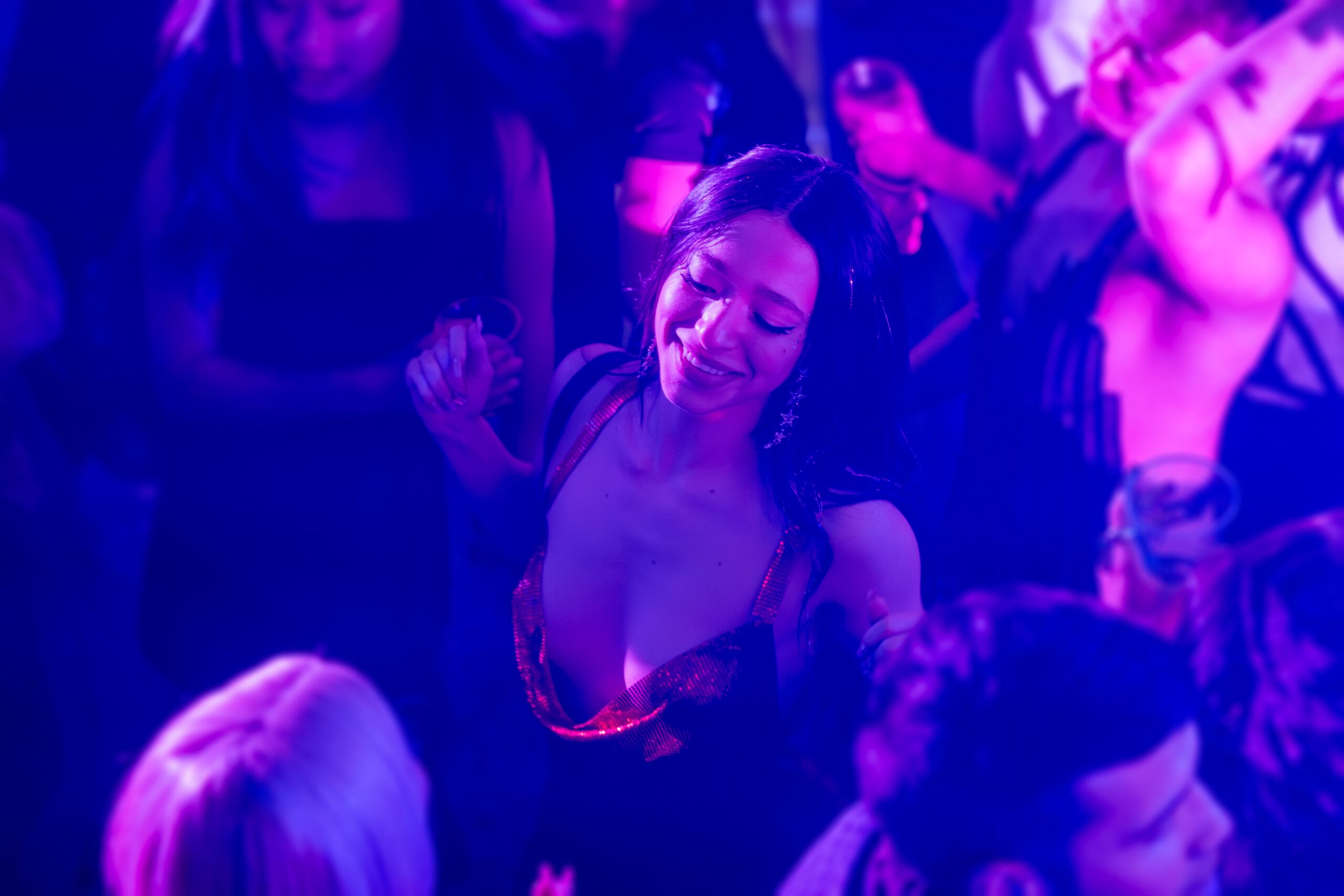I’m beginning my Cannes reviews with my favourite film from the festival, and the Palme D’or winner, Sean Baker’s wonderfully raucous and fantastically sweary Anora. The film marks another arrow in Baker’s mission to destigmatize sex work, and it continues his trend of breathing vibrancy and colour into subject matter so often treated as seedy, sad, or shameful.
It follows Anora (Mickey Madison), who goes by Ani, a stripper and sex worker who works in a Brooklyn strip club. Baker introduces us to this club with radiant verve, opening the film with a panning shot across different lap dancers basked in a neon glow, and accompanied by Take That’s life affirming hit ‘Greatest Day’. There is a warmth and integrity to this world, which Baker populates with real life sex workers, as the film shuns themes of exploitation and instead offers us a family of supportive and empowered women. Ani’s Uzbek heritage and proficiency in Russian lands her a gig entertaining Ivan (Mark Eidelshtein), the son of a Russian Oligarch and the archetypal spoilt man-child, who takes a shining to Ani. He then hires her to spend a week hanging out with him and his friends culminating in a wild Vegas weekend. Queue Ivan and Ani, now smitten with each other, doing what all smitten couples do in Vegas and deciding to get married.

However, what happens in Vegas really doesn’t stay in Vegas, and gossip of their fairytale wedding reaches Ivan’s indignant parents who decide it must be annulled. Thus, they hop on the first flight over from Russia and send their henchmen, who were supposed to be keeping an eye on Ivan, over to his gaudy mansion to make sure the newlyweds don’t go anywhere. Unfortunately, things quickly become heated between Ani, Ivan, and his father’s men, and everything descends into an outrageously funny comedy of errors. This involves screaming matches over the phone, a ruined baptism, broken noses, and Ani being hog tied on a couch. Amongst all this chaos Ivan, realising the magnitude of his father’s rage, decides to run. This leaves Ani hoping to convince Ivan to stay married to her, forced to work with the the henchmen determined to prise them apart to track him down.
When describing the plot to a friend of mine she remarked that it sounded like Pretty Woman crossed with 365 Days, and indeed in its bare bones there is some overlap with such films. However, where they lean into extreme sanitation or dangerous fetishisation, Baker hues an altogether more creative and authentic story, offering us both a rich character study for Ani and a buoyant evocation of her world. The film is as funny as an any straight comedy I’ve seen in recent years. It has some expert slapstick accompanied with brilliant comedic timing, and once the film gathers momentum it never stops, weaving its drama and humour together seamlessly.
The comedy, and the film, only work though because it and the audience are always placed on the same level with Ani. The film never pacifies her, and the camera never looks down on her. Instead, Ani retains agency and dignity, even when suffering the indignity of being tied up on a couch, and the audience is constantly rooted alongside Madison’s barnstorming performance. Ani’s confidence and authority is clear in one great scene when she responds to her boss’ protestations at taking a week of work. She tells him he doesn’t give her social security, or a 401k, so she can work whenever the hell she wants.
In the hands of a lesser director or lead actor I could so easily see this film falling apart, with its moments of surrealist comedy sitting uncomfortably alongside its more sobering social themes and depictions of prejudice. Yet, Anora contains an alchemy and sheer likeability which allows the film to really soar.

Plaudits must also be handed to out to the supporting cast, and above all to Yugor Borisov who plays one of the henchmen, Igor. Igor first appears as comic relief, a blunt caricature for Ani to square off against, but grows into a central pivot around which the film’s emotional journey hinges. I never thought I would find the phrase ‘faggot ass bitch’ so resonant.
This emotional journey is where the film delves into its more sombre moments, and into an ending which packs one hell of a wallop. While Anora is a fairytale it is certainly no fantasy, and the film never sands off its rough edges of power imbalance and inequality. Even more potently the film gradually takes us behind Ani’s bravura visage, and into the heartache and inner conflict which can accompany her life and line of work. This turmoil all comes to a head in one delicate and difficult scene which is handled with a graceful deftness from both Madison and Borisov.
However, at its heart Anora is a hopeful film. It presents Ani’s world as one of light and aspiration, in which decency and goodness can abound. It is a film which feels at times raw, but which more importantly sparkles. It brings a little bit of movie magic to the kind of story movies have been too reticent to tell for too long.

